Spring Semester
January 16th – May 1st 2026
Applications Open: August 1st 2025
Application Deadline: October 1st 2025
Term overview
Celebrate the Sunshine and Spring in Dingle!
Start your semester in mid January and watch as Dingle awakens from its peaceful winter slumber into the vibrant energy of spring. With few tourists around, you’ll be warmly welcomed into the heart of the local community, experiencing Dingle as few outsiders ever do.
Spring semester students at SHU Dingle get to live like locals, orming meaningful connections with the community, witnessing nature’s return in the lush countryside, spending time with playful newborn lambs, and even having the chance to march in Dingle’s beloved St. Patrick’s Day Parade.
You’ll explore iconic destinations like the Cliffs of Moher, Galway City, and London, all included in your program fee, while also enjoying plenty of opportunities for independent travel. As the days grow longer and brighter, life in Dingle moves outdoors, with adventures like surfing, kayaking, and horseback riding becoming part of your weekly fun.
With temperatures ranging from the upper 40s in February to the low 60s by May, springtime in Dingle offers comfortable weather ideal for hiking green hills, wandering the coastline, and soaking in the natural beauty of the region. Alongside your classroom studies with expert faculty, Dingle itself becomes your living, breathing campus.
Ready to explore more? Visit the Experience section for all the details.
Courses
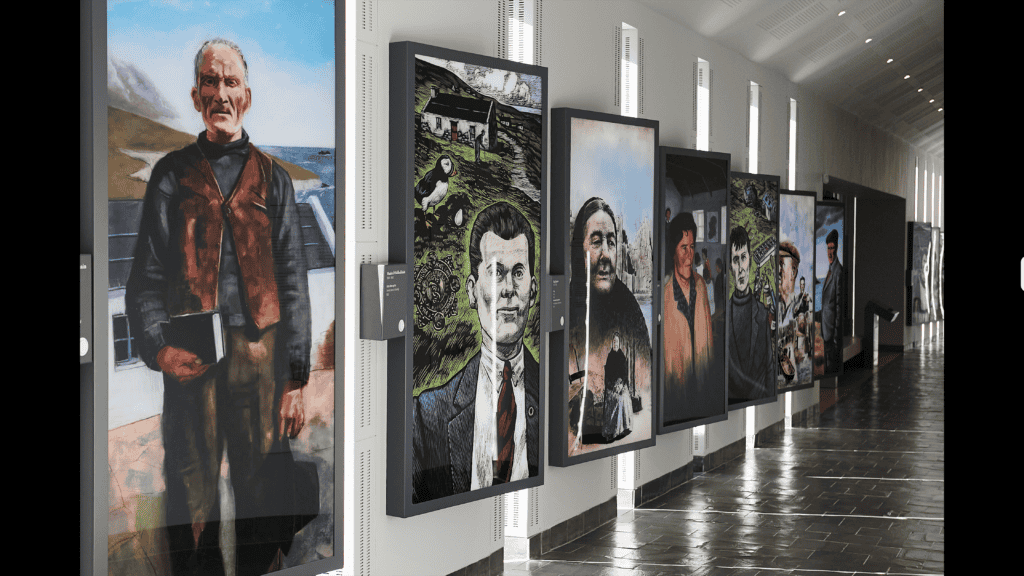
DESCRIPTION
FACULTY
Dáithí de Mórdha Ph.D.

DESCRIPTION
This course will introduce students to the varying marine environments surrounding the Dingle Peninsula and their importance, in terms of biodiversity and sustainability. Through multiple field trips and lectures, we will explore many coastal ecosystems, how they are shaped, and the organisms that live in them.
Students are introduced to the abiotic and biotic processes that influence aquatic communities including coastal streams, rocky intertidal zones, sandy beaches, marshes, harbors, and the open ocean.
Throughout the course, we will also discuss how human activities affect these ecosystems and other topical marine issues.
FACULTY
Sharon Ni Shuilleabhain Ph.D.
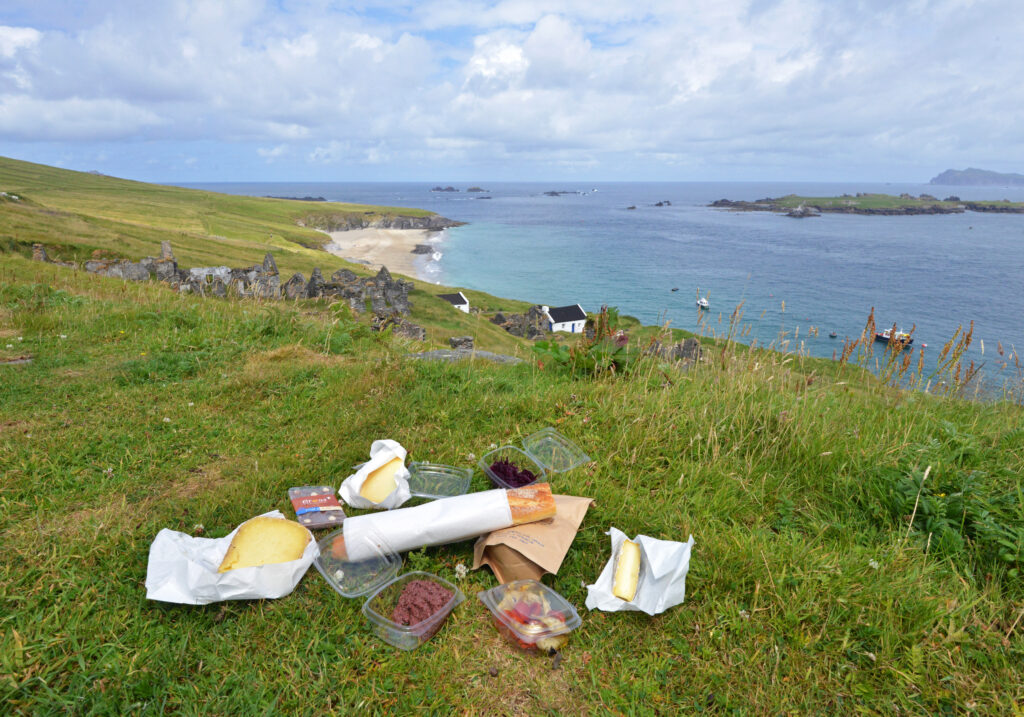
DESCRIPTION
This course provides an examination of the six classes of nutrients with strong emphasis on chronic disease prevention and improving athletic performance. Issues concerning dietary supplements, functional foods, and the ethics of food choices are also explored.
FACULTY
John O’Connor M.Sc
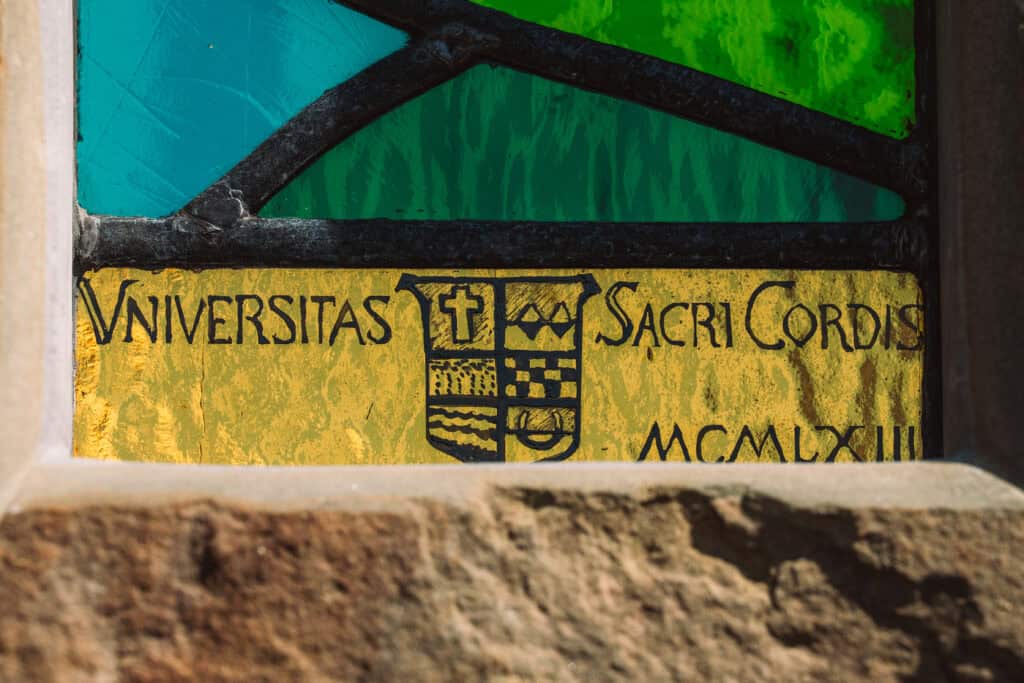
DESCRIPTION
CIT is Sacred Heart University’s academic signature core. It provide students with an interdisciplinary, foundational understanding of the Catholic intellectual tradition from the classical to the contemporary periods. Using seminar pedagogy, it gives students an understanding of the roots and development of the Catholic intellectual tradition as an ongoing, 2,000-year conversation between the Catholic community of thinkers, writers, artists and the cultures in which they have lived, asking fundamental questions about God, humanity, society, and nature.
In addition, it introduces students to fundamental claims of the Catholic Intellectual Tradition; enable students to understand that Tradition as characterized by open, rigorous intellectual inquiry in the context of a faith tradition; engage students and faculty in seminar discussion; and enable students to see the value of this Tradition in the contemporary world help develop students’ reading, writing, and speaking skills.
FACULTY
Billy MagFhloin Ph.D.
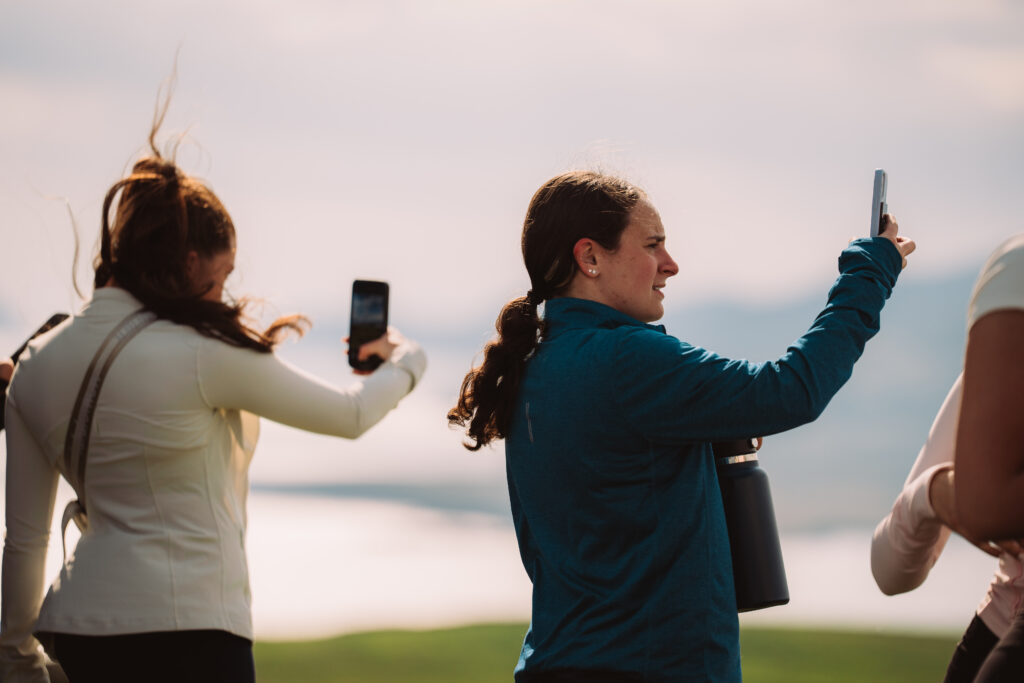
DESCRIPTION
This introductory course will examine the relationship between filmmaker and location. By working with narrative and non-narrative film styles, students will gain exposure and understanding to producing creative content in a foreign country.
Using the student’s emotional experience and study abroad locales, students will create creative pieces that will serve their artistic vision, their fundamental understanding of film production, and the logistical elements of field production.
FACULTY
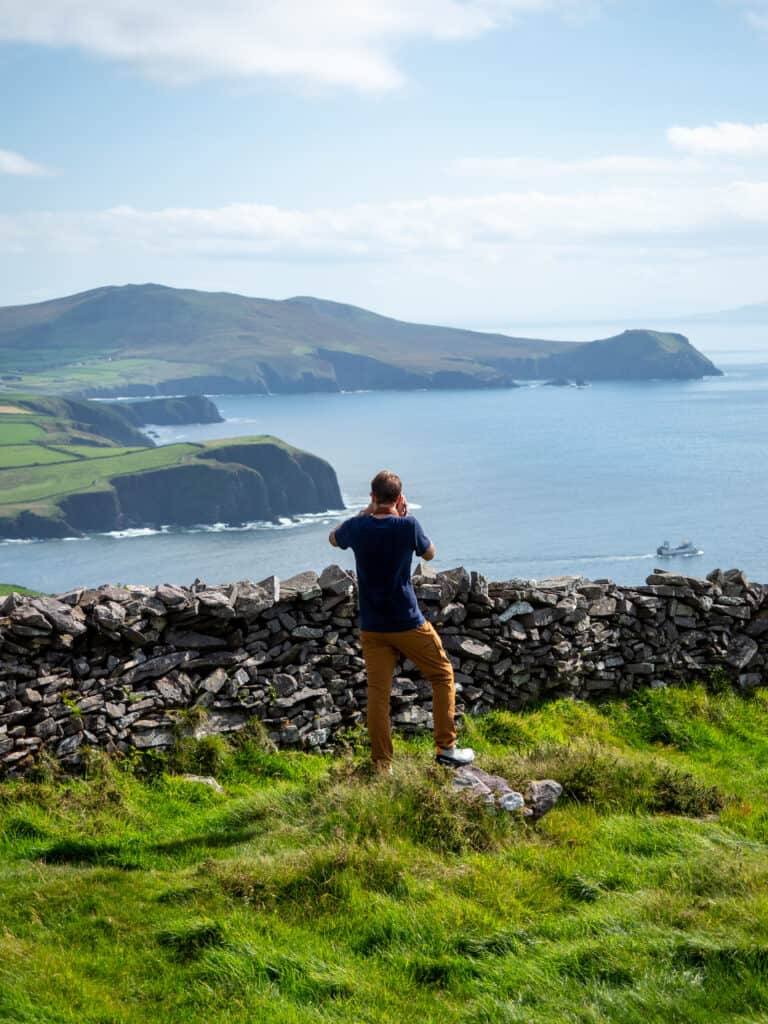
DESCRIPTION
Delivered through a combination of lecture, creative workshop and screening formats, this course examines Irish Cinema in historical, sociocultural, and contemporary contexts, with a particular emphasis on interrogating concepts of Irishness, identity, and tradition.
Included in this course will be an overview of various theoretical and methodological approaches to the study of film, so that students will be provided with an appropriate vocabulary in the academic study of film, making it accessible to students of both Media and other majors.
There will be a particular focus on learning through doing, leading students to critically engage with theoretical concepts through the creation of various audio-visual projects and exercises inspired by Irish film and visual culture.
FACULTY
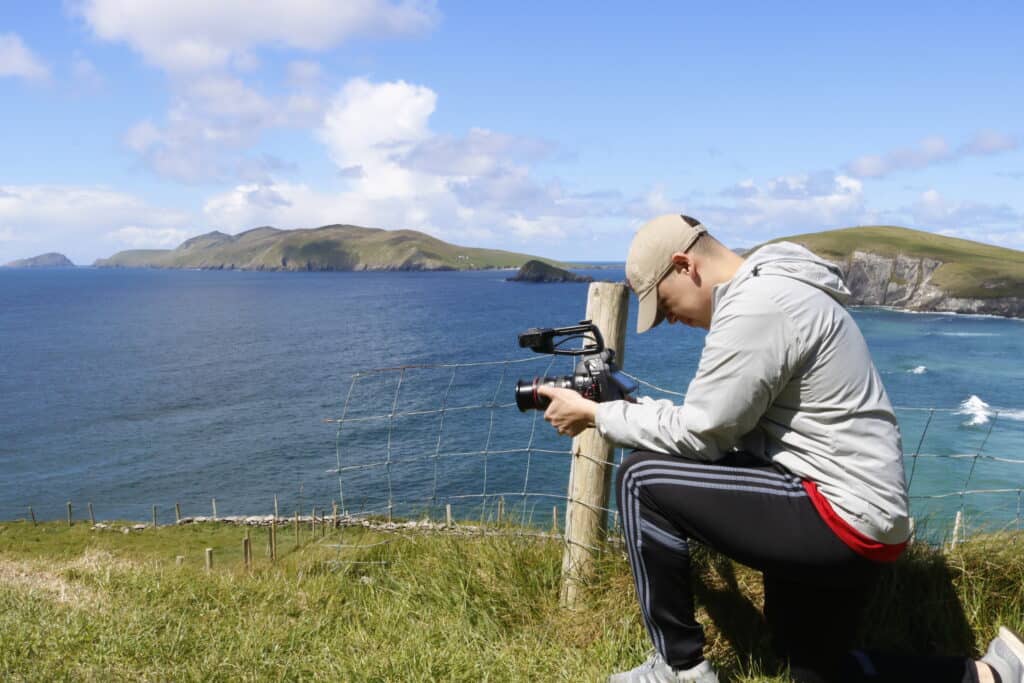
DESCRIPTION
The School of Communication, Media & the Arts encourages all Media Studies and Digital Communication majors to experience at least one internship before they graduate, and many majors complete two or three. Not only do students gain valuable experience but they receive academic credit for their internship learning experiences.
In addition to completing internships at top corporate media outlets, some students choose to focus on community outreach and teacher training opportunities depending on their career goals and personal interests. The SHU in Dingle program is an ideal location to experience the many aspects of media and communication training.
FACULTY
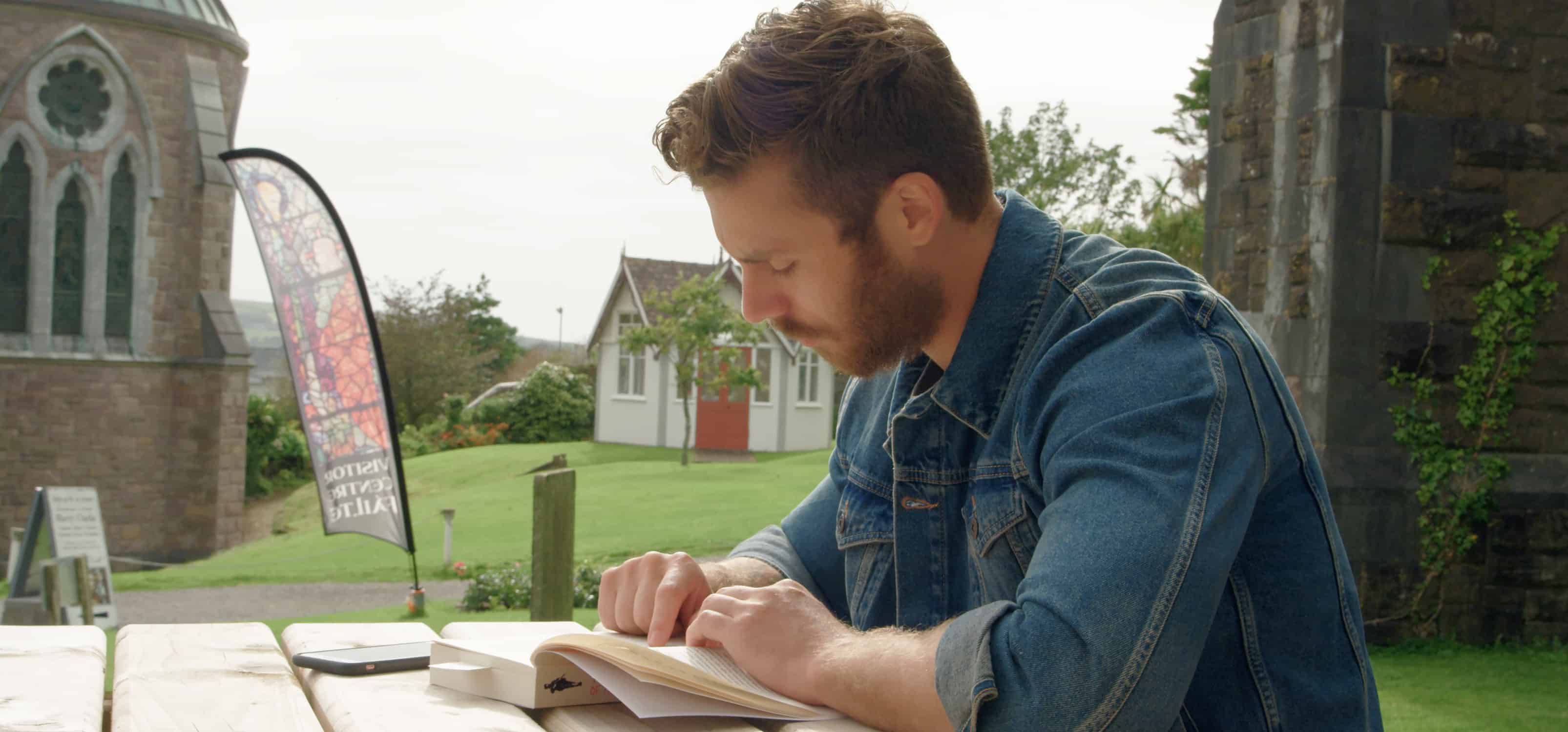
DESCRIPTION
This workshop in creative writing is designed to encourage English majors’ and Irish Studies minors’ engagement with Irish literature through practice, the exercise of creative ideation, and to develop students’ deeper understanding and appreciation of historical and contemporary Irish literary texts through artistic expression.
Students will read and workshop their ideas about Irish and Irish-American-authored texts in class, which they will then build upon in weekly creative writings tasks. These projects will range from flash fiction to poetry, songwriting to scriptwriting and comic book-writing, which they will also share with each other in class and develop into a writing portfolio.
Unique to the Sacred Heart in Dingle campus, participants of this creative writing workshop will attend a number of readings by local/contemporary authors (who write both in English and Irish) and present their own work in two open mic nights alongside local practitioners. Students will develop an ongoing dialogue on Irish, Irish-American, and outsider identity, through the sharing of their writing and ideas. They will enjoy a once-in-a-lifetime opportunity to explore and expand the Irish literary tradition from inside the Dingle literary arts scene.
FACULTY
Ciara Barrett Ph.D.
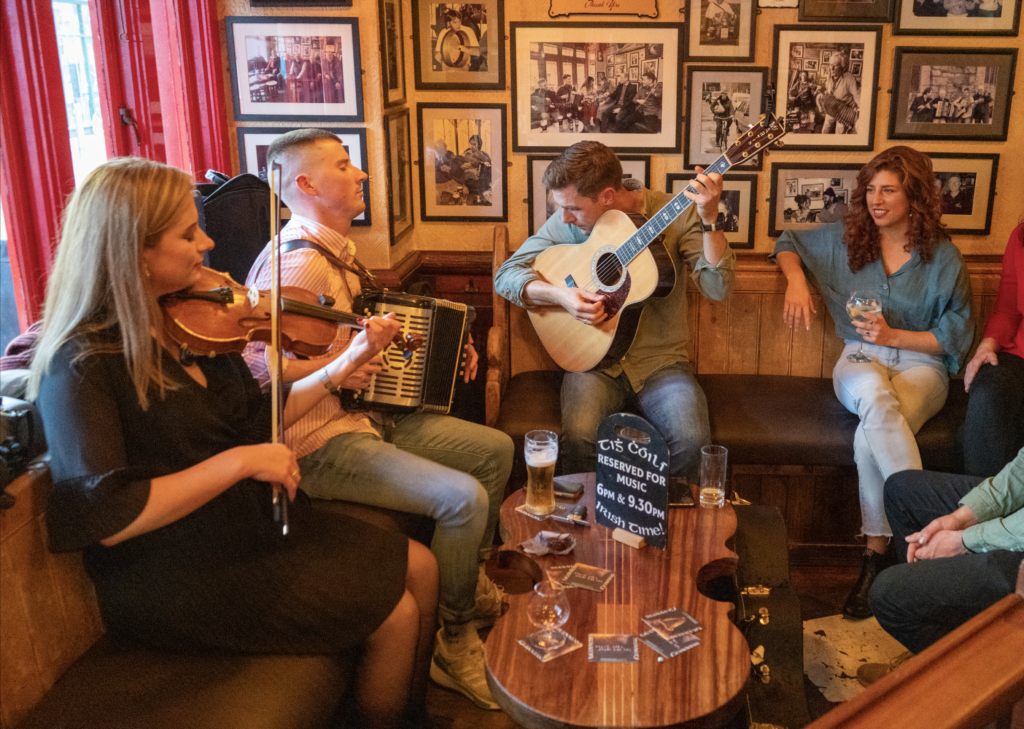
DESCRIPTION
This course provides students with a thorough overview of traditional Irish music, song and dance from their earliest references right up to today’s influence on the world music stage. Aural, as well as some basic traditional musicianship skills, will be developed over the course. Students will experience firsthand the Irish music scene locally.
Attendance at sessions and “céilís” will enable them to savor Traditional music in its natural social setting. The course will study the history and development of the tradition, while also ensuring the students gain a deeper understanding of this tradition by learning some practical skills.
FACULTY
Niamh Varian Barry MA
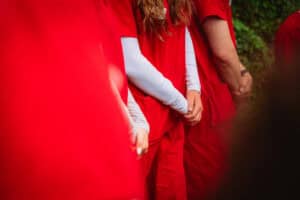
DESCRIPTION
Health Assessment introduces assessment components including interviewing, history taking, functional assessment, and physical examination of adults and geriatric patients with emphasis on health promotion and disease/injury prevention. This course begins with foundational concepts of professionalism, patient-centered care, and safety. Students will build upon learned assessment techniques to begin examining patients using a head-to-toe approach.
Course content focuses on the role of the nurse, inter- and intraprofessional communication, data collection, and patient teaching. Emphasis is placed on the assessment phase of the nursing process. Students are expected to develop critical thinking skills to begin identifying problems and deficits in an effort to guide the development of a plan of care. By the end of the semester, students will formulate a holistic and comprehensive concept map diagramming actual and potential health issues to illustrate this learning.
FACULTY
Fiona Barton M.Sc
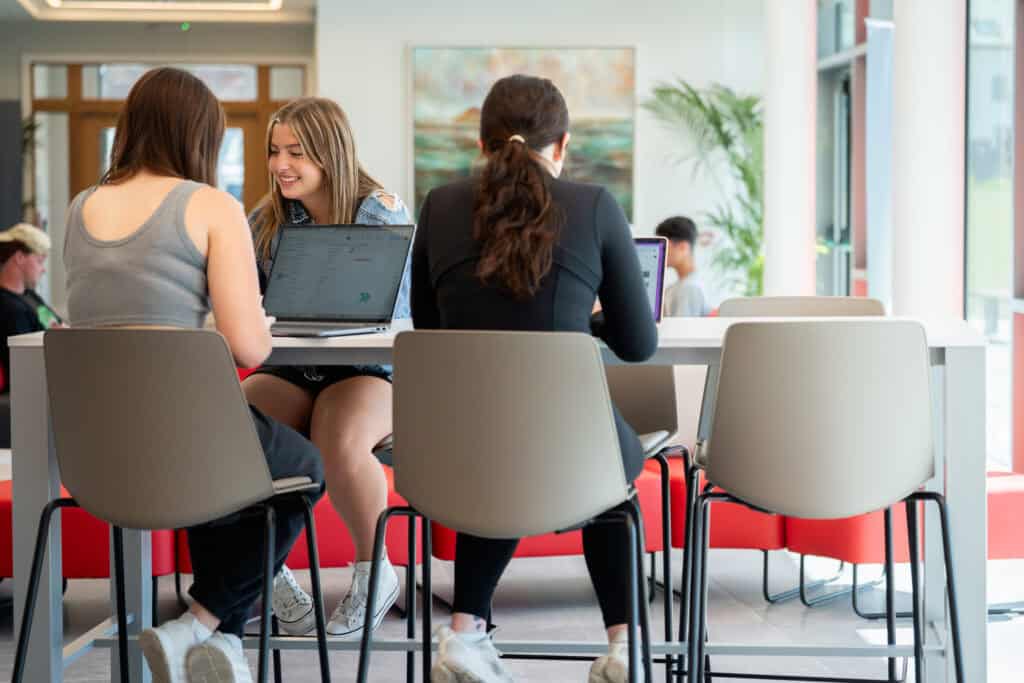
DESCRIPTION
This course is designed to promote the understanding and application of fundamental disease processes and disabilities. General concepts of disease, including etiology, morphology and clinical significance are discussed. These concepts are applied in a systems oriented approach to disease processes, and concepts of human genetics will be covered.
FACULTY
Mary Dietmann, Ed.D., APRN, ACNS-BC, CNE
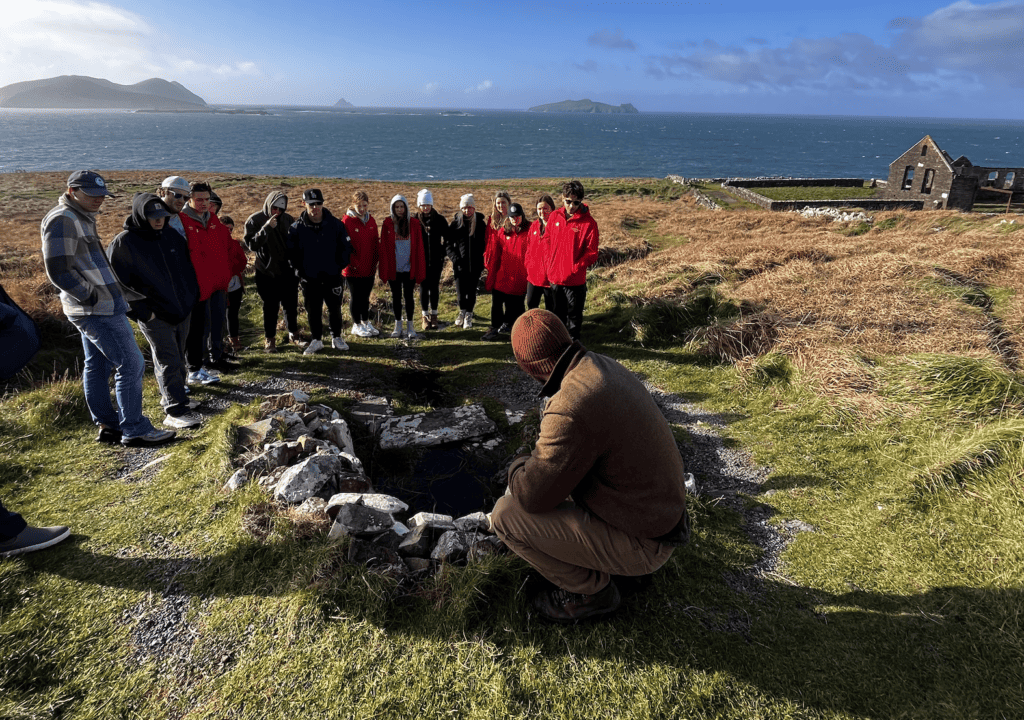
DESCRIPTION
Study the ancient religion of Ireland, of gods and goddesses, ancestors and rituals, holy places and sacred rulers. Learn about the Celtic origins of Halloween, and the great seasonal festivals of the druids. Walk through the landscape and discover traditions and customs from ancient times that are reflected in the modern world, through myth, place names and customs.
FACULTY
Billy MagFhloin Ph.D.
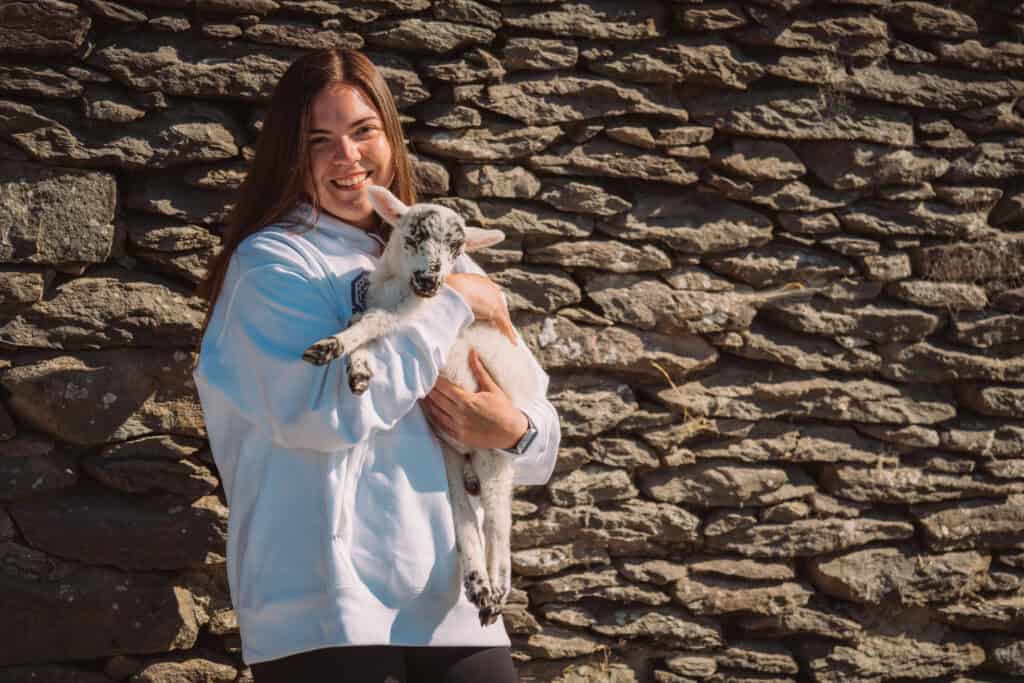
Fall
Semester
Read More
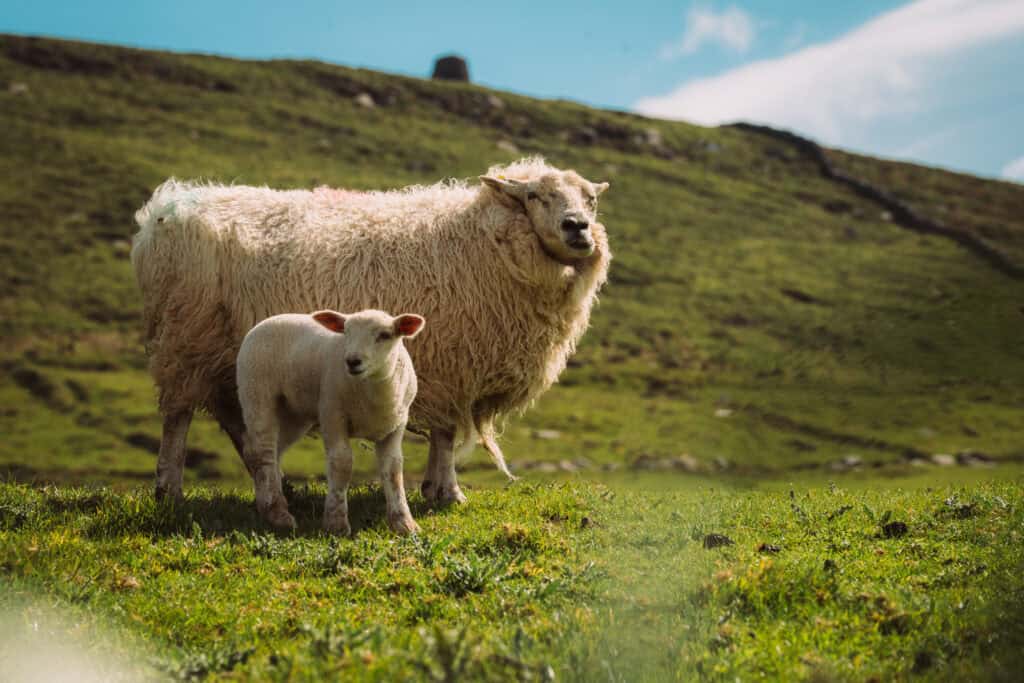
Spring
Semester
Read More
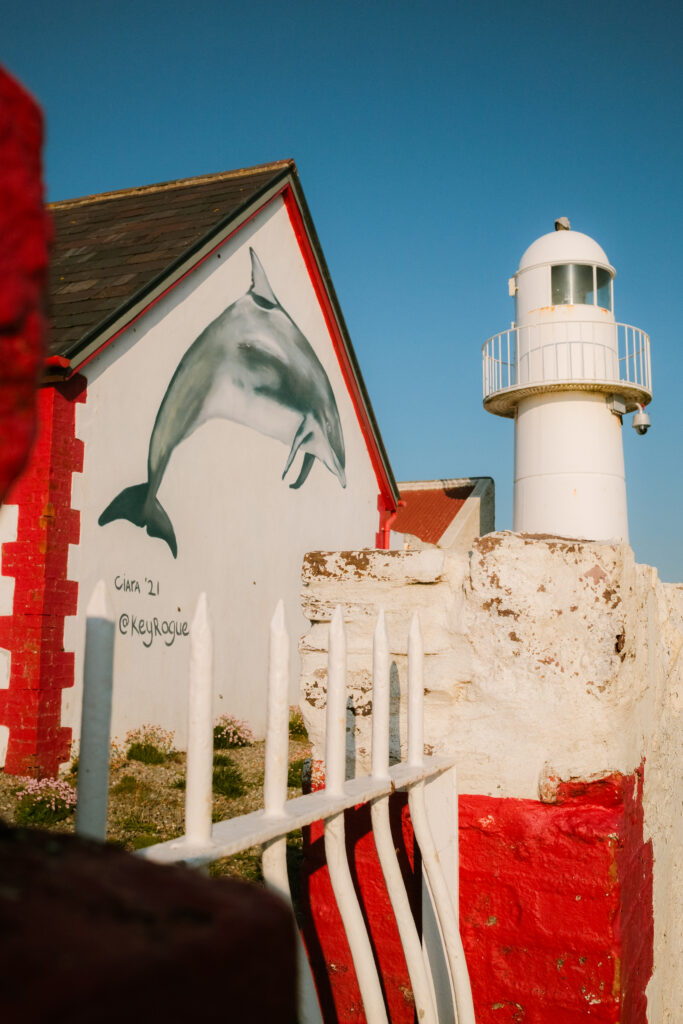
Winter
Short term
Read More
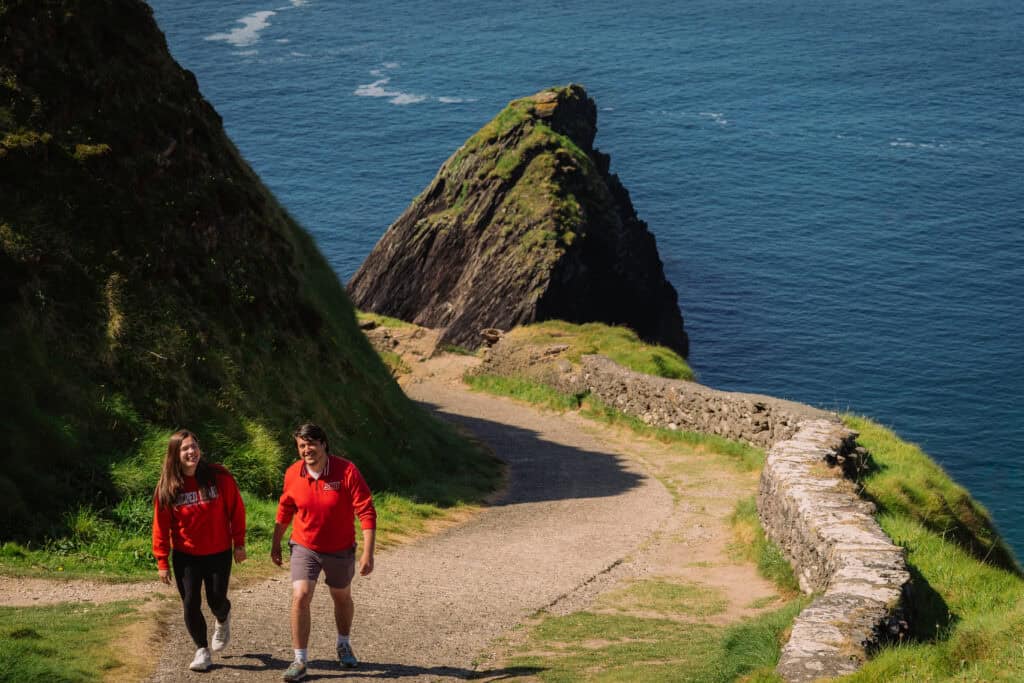
Summer
Short term
Read More

How to Apply

Tuition & Fees


